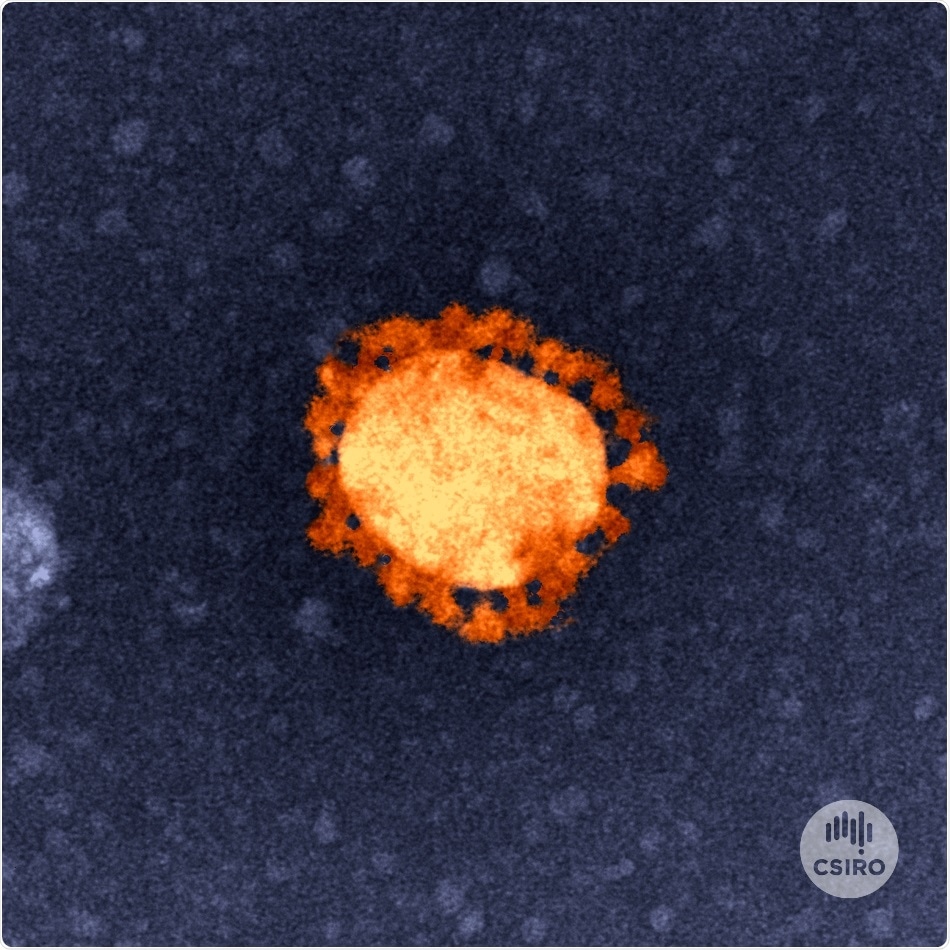CSIRO, Australia's national science agency, will spearhead a $1.7 million project to identify new treatments for COVID-19, including 'long-COVID'.

An image of the corona virus responsible for causing the disease COVID-19. Image Credit: CSIRO
Scientists will develop a faster, smarter way of rapidly screening existing drugs and advancing those that can be used to treat COVID-19 and aim to have identified thee suitable TGA- or FDA-approved drug candidates to progress to phase 2-3 human clinical trials within a year.
Led by researchers at CSIRO's Australian Centre for Disease Preparedness in Geelong, the project received $1 million in funding from the Australian Government’s Medical Research Future Fund (MRFF), with the remaining contributed by CSIRO.
CSIRO scientist and project leader, Dr S.S. Vasan, said in addition to vaccines, there was an urgent need for safe, effective and affordable COVID-19 treatments that specifically targeted the virus.
“A great strategy to find potential COVID-19 treatments is to repurpose drugs already approved for other diseases, but the current methods to do this are expensive, time-consuming and not fit-for-purpose,” Dr Vasan said.
The MRFF funding will enable us to develop a multi-tissue drug screening tool, tailored for infections by SARS-CoV-2 and all its variants of concern, which could help fast-track drugs for phase 2-3 human clinical trials and minimize the need for animal trials.”
Dr S.S. Vasan, Scientist and Project Leader, CSIRO
The scientists will use four types of clinically-relevant human tissues – lower respiratory tract, lung, neural and cardiac tissues – specifically selected based on how SARS-CoV-2 infects people.
Barwon Health's Director of Infectious Diseases and project collaborator, Professor Eugene Athan, said the lower respiratory tract and lung models are appropriate because they play a key role in severe infections.
“The neural and cardiac tissues are highly relevant because this disease is now known to cause neurologic disorders, heart dysfunction and damage in some patients,” Professor Athan said.
The scientists will use novel systems biology (a biomedical approach to understand the bigger picture) and machine learning methods to differentiate between healthy and diseased states of key human tissues, which will enable additional ways to determine if a drug is able to reliably restore a diseased tissue to a healthier state.
This initiative builds on an ongoing systems biology collaboration on the long-term impacts of COVID-19 through the Geelong Centre for Emerging Infectious Diseases, comprising Barwon Health, CSIRO and Deakin University.